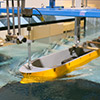Outline
The Department of Materials educates students from the understanding of the microscopic behavior of atoms and electrons that compose inorganic materials, to the controlling macroscopic processes of inorganic materials to the macroscopic concepts and principles that govern the expression of properties. We also educate specialized knowledge about subdivided and advanced material engineering. Our aim is to majorize in the current state of technology related to engineering as a whole, and to develop creative researchers and engineers who can solve various problems from the viewpoint of materials science and engineering with a view to developing a sustainable society.
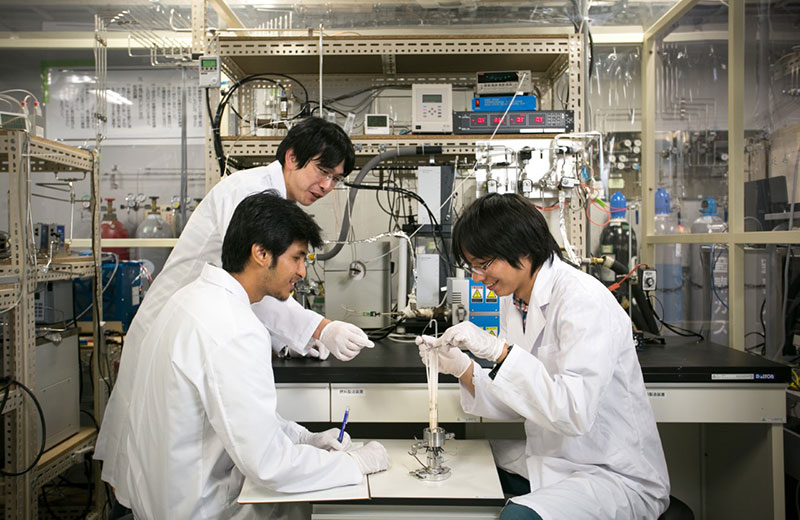 Metallurgical Physical Chemistry: Based on the principle of physical chemistry, the course of Reaction Engineering for Materials deals with development and design of material reaction process for the metal smelting & refining processes, and material fabrications. We also conduct research and provide education for physical chemistry related the reaction engineering. In addition, research on electrochemical surface modification is prepared.
Metallurgical Physical Chemistry: Based on the principle of physical chemistry, the course of Reaction Engineering for Materials deals with development and design of material reaction process for the metal smelting & refining processes, and material fabrications. We also conduct research and provide education for physical chemistry related the reaction engineering. In addition, research on electrochemical surface modification is prepared.
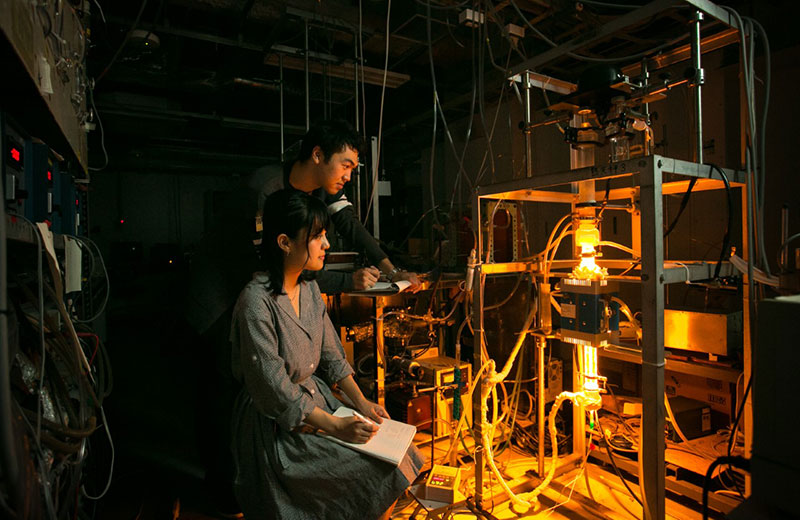 Metals Science for Structural Materials: The course of Mechanical Processing for Metals and Composites offers comprehensive education and research on forming processing, melt processing, plastic deformation, microstructure designing, and composite materials for structural materials. In addition, we educate the principles for controlling the microstructure of materials by various phase transformations and the evaluation and development of microstructural analysis methods.
Metals Science for Structural Materials: The course of Mechanical Processing for Metals and Composites offers comprehensive education and research on forming processing, melt processing, plastic deformation, microstructure designing, and composite materials for structural materials. In addition, we educate the principles for controlling the microstructure of materials by various phase transformations and the evaluation and development of microstructural analysis methods.
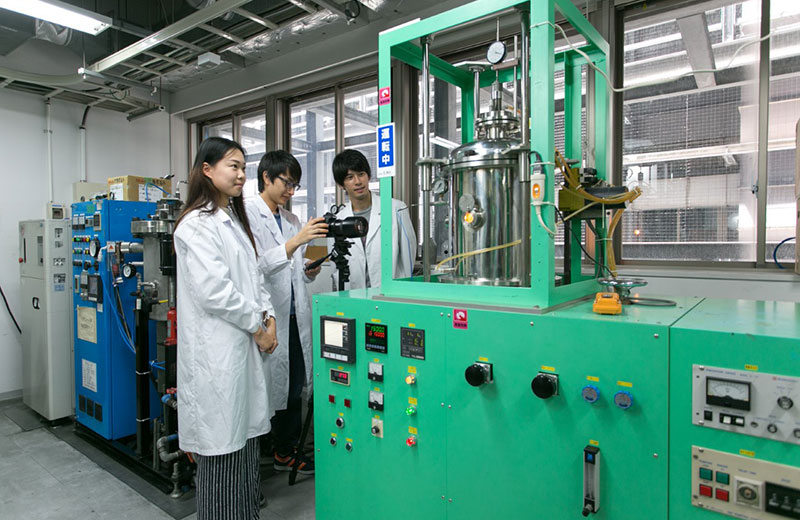 Functional Materials Science: Atomic and molecular manipulation, surface reaction control, crystal defect control for the production and evaluation of high-performance semiconductors, metals, ceramics materials, advanced thin film materials and nanoscopic microstructural observation, and furthermore, education on the design and evaluation of new functional materials in harmony with the environment.
Functional Materials Science: Atomic and molecular manipulation, surface reaction control, crystal defect control for the production and evaluation of high-performance semiconductors, metals, ceramics materials, advanced thin film materials and nanoscopic microstructural observation, and furthermore, education on the design and evaluation of new functional materials in harmony with the environment.
What do you learn?
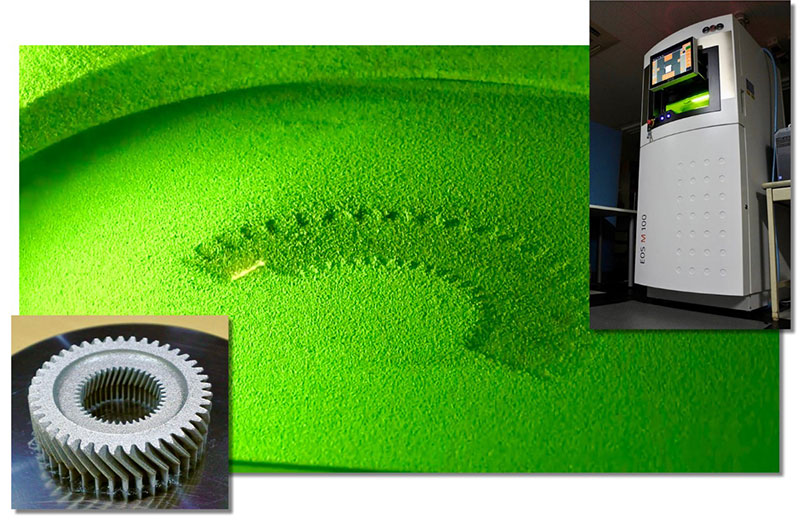
Materials science and engineering contribute to our society by scientifically understanding the microscopic principles of atoms and electrons that make up materials and by developing the structure, function and characteristics of industrial products through the designing of the microstructures. In the department of Materials, the students will solve problems from a new perspective based on the basic knowledge of materials science and engineering from the refining of raw materials acquired to the manufacturing process and material properties. Also, students will acquire more specialized and sophisticated expertise, more practical experimental technology, and cutting-edge technology development. We establish the following curriculum policy with the goal of training to develop highly creative researchers and engineers who can adapt to changes in the environment.
- A seamless 6-year integrated curriculum is prepared, which connects from the undergraduate education of the Department of Materials.
- Goal-oriented education with elements of active learning is performed to understand the needs of users going back from the purpose and to think what to learn deeply.
- Education program consists of 4 subjects.
(1) Subject which is subdivided specialized areas, such as raw material refinement, final product structure control and property evaluation, new material creation and process development.
(2) Subject which is deeply understand the concepts and principles that express the physical properties of materials, and learn a wide range of material engineering knowledge and the latest technology.
(3) Subject which is actively collecting social needs, such as organizational control and characteristic evaluation of final products, creation of new materials and process development, by organically collaborating with companies.
(4) Subject which is expand student’s horizons and gain an overall bird's eye view of engineering based on inorganic materials.







